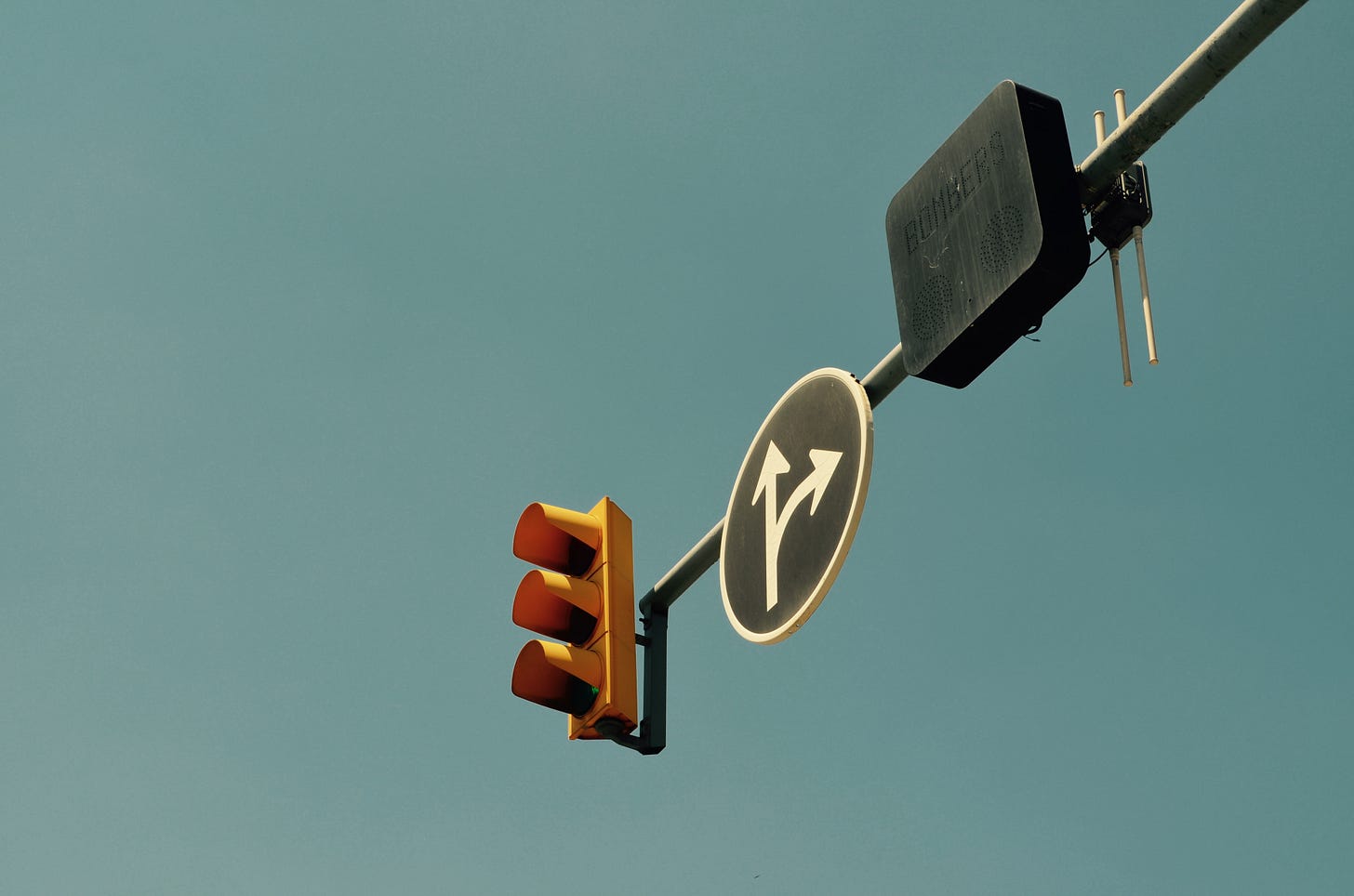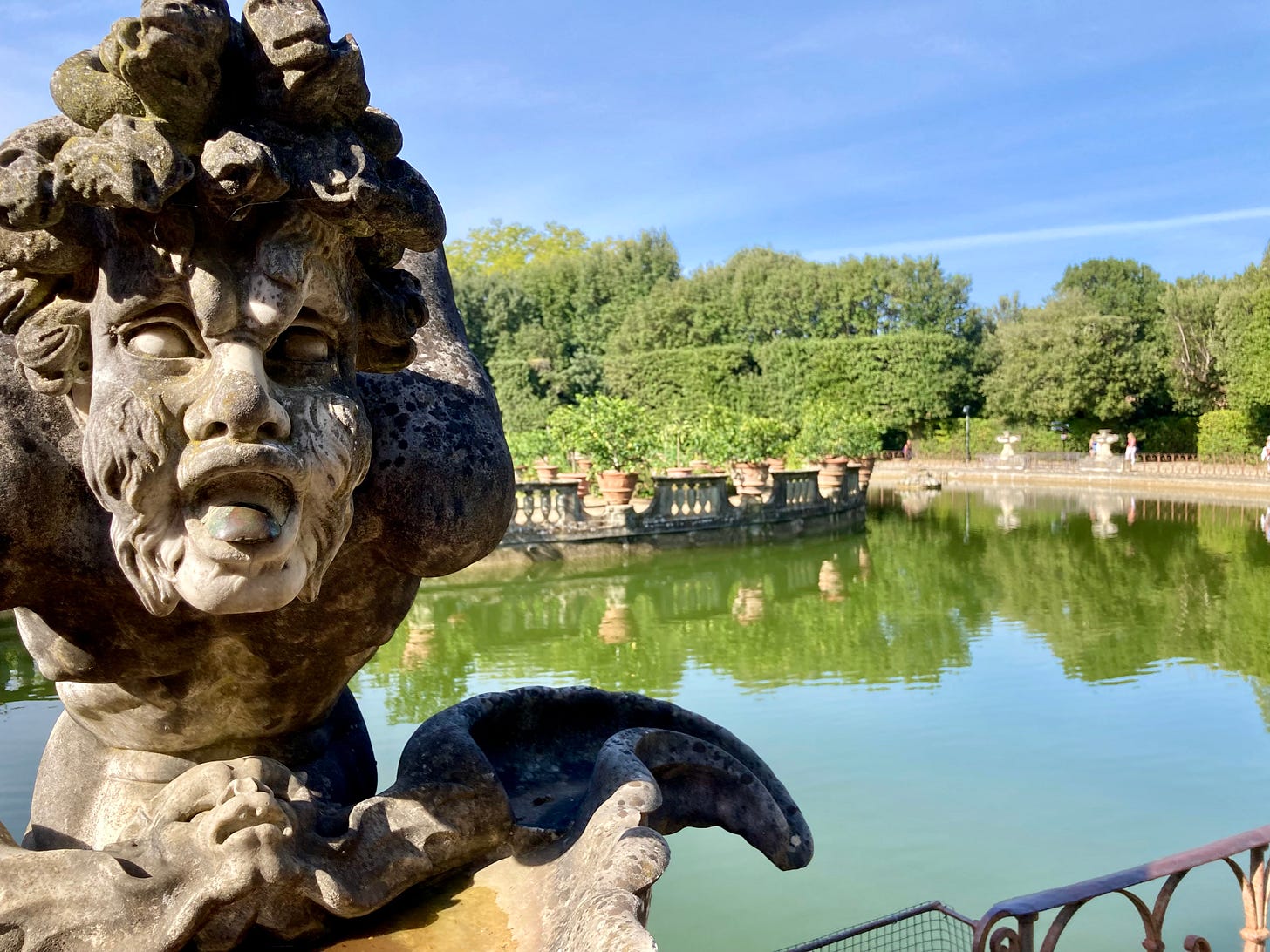A case for posthumanism - Part 1
Now that the ParaDoxa site is up and running, I thought I would start to articulate some of the philosophies and ideas that lie behind my attempt to develop something radical and new in healthcare.
Perhaps the most confronting and exciting concept — and so naturally the one we should tackle first — is posthumanism.
What is it about posthumanism that’s so appealing?
Firstly, posthumanism feels like it could be a powerful response to many of the anthropogenic problems we’re facing in the world today; most notably the exploitation and enslavement of the earth and its people for the personal gain of a few.
But also because people in healthcare are staunchly humanistic. Whether we come to healthcare with Enlightenment values of objectivity, experimentation, and human sovereignty over animals, plants and inorganic ‘things’; existential beliefs about reality mediated entirely by human subjectivity; or social forces defining the conditions we are born into and live with despite our much-vaunted ‘agency’, our ontological and epistemological presuppositions are deeply anthropocentric.
Western healthcare begins and ends with the human.
Consider this paragraph as an example, from the opening of a recent Guardian review of Ashley Ward’s new book Sensational: A New Story of Our Senses;
’”If you are ambitious to found a new science, measure a smell,” said Alexander Graham Bell to a graduating class in 1914. A century later, scientists are still working on it. But it’s not just smell that remains difficult to define and categorise. Humans can calculate pi to trillions of digits, but can we agree on what the colour teal is? Or whether coriander tastes nice? Or when pleasant stroking becomes annoying tickling? The mildly unnerving point is that much of the information we learn through our senses cannot be objectively measured. Colour “doesn’t actually exist outside of our brains … there is also no sound, or taste, or smell … it’s the brain that construes them” (Guest, 2023).
The unstated assumption here is that sensations are human faculties, created in the brain, with perhaps even no physical basis — or at least, one that eludes (human) science.
An anatomist would no doubt disagree. Are Guest (the reviewer) and Ward (the author) arguing that Golgi tendon organs and post-synaptic channel receptors are present only in human imagining? Or that people of colour also only exist in the minds of individual human beings? I doubt it. And yet the assertion is that it’s the brain that construes sensation.
So what of the vast trillions of entities throughout the universe that do not possess a human brain? Does colour exist for them? Does touch?
If not, and we want to preserve notions like colour and smell only for humans, we need a new structure to our language: one that can accommodate the fact that plants can perceive light to a much higher degree than humans, and bacteria show empathic responses to each other in the presence of noxious chemicals (Chamovitz, 2012).
The problems with our latent and unacknowledged humanism don’t just end there because it’s not just a general notion of ‘the human’ that is used in healthcare, it’s a very specific one. It’s a human that is bounded and autonomous; a human with a distinctive identity; a being with clearly defined spatial edges, and a temporal story running linearly from birth to death.
This is the human taught to us in anatomy and physiology. It’s the elderly woman who falls and fractures her wrist. It’s in the psychology of identity and narratives of illness as a ‘disrupted biographies’ (Engman, 2019). It’s the presumed basis of human relations: of the “I” and the “you”. And it’s in the division between the real and virtual world of simulation and telemedicine.
But how fully encapsulated is this human being really?
Imagine an oxygen molecule somewhere in the room near to you. At some point in the next 10 minutes you’ll breathe that in. But at what point does the oxygen molecule become part of you? When it’s in the trachea? The alveoli? The mitochondria?
Given that about 60% of your body mass — more even than carbon — is made up of oxygen, it has a pretty important role to play in constituting what and who you are, so it would be good to know.
And if, to paraphrase Tim Morton, there’s a lot less of ‘me’ involved in me existing than I’d like to think there is (Morton, 2017), how confident can I be in the classical idea that I, Dave, have a distinctive body, personality and being?
The vast majority of the bounded body that makes up the human being is inorganic matter that is constantly interchanging with the rest of the universe. So do I extend out from my home in New Zealand to include the oxygen molecules just being produced by algal blooms in the swamps of Louisiana?
Where do I begin and the rainforests end?
So is everything just matter?
And if it is, how do we account for the vital force that animates life and differentiates a rock from a child, a dead cat from the one that’s just ruined our curtains?
Would a renewed acknowledgement of the role that matter, objects, forms, and things play in health and healthcare be enough to constitute posthumanism? If so, isn’t this, to paraphrase Foucault, just replacing one bad human-centred hegemony with another (one in which we’ve successfully ‘flattened’ the human but have nothing to say about human affairs)? Does human subjectivity and sociality have any part to play in posthumanism?
These questions have energised a whole new field of philosophy in recent years. And posthumanism has become ‘an umbrella term’ (Ferrando, 2019) to encapsulate a range of loosely related philosophical, cultural, and critical positions, including;
Transhumanism (in its variants as Extropianism, Liberal Transhumanism, and Democratic Transhumanism, among other currents); New Materialisms (a specific feminist development within the posthumanist frame); the heterogeneous landscape of Anti-humanism; the field of Object-Oriented Ontology; Posthumanities and Metahumanities’ (ibid).*
I would argue that if we’re going to make our way through this mass of philosophical complexity, we are going to need a philosophy on which to ground our thinking that is adequate to the task: one that can imagine healthcare in an expanded field.
The biosciences can’t do it alone because they cannot account for human subjectivity and socially constructed knowledge.
Experiential, existential and phenomenological philosophies can’t do it alone either because they have no place for mind-independent entities like sarcomeres and oxygen molecules.
And philosophies of social construction and structure exclude both individual biological, psychological and subjective interpretations of reality.
Pragmatic, ‘holistic’ and whole-world approaches like the biopsychosocial model can’t do it because they remain only superficial, lacking the capacity to overcome the deep ontological differences between their different domains (the biological only sits comfortable next to the psycho and the social in a Venn diagram).
Enter Gilles Deleuze.
To my mind, Deleuze’s radical philosophy might just offer the best way to make sense of all of this. But it cannot be approached from where we currently stand, deeply nested within Enlightenment humanism.
Deleuze operates in a different universe to the world of Western healthcare.
Disinterested in the classic western binaries between true and false, healthy and sick, mad and sane, able-bodied and disabled, human/non-human, Deleuze sets them all aside and constructs an entirely new map with language and concepts that are, at times, completely alien but nonetheless thrilling and enlivening.
So, over the course of the next few weeks, I’ll be posting up some pieces about my reading of posthumanism that, I hope, spark your interest and give you a sense of their possibilities for an entirely new world of healthcare.
I’ll try to explain some of the main principles of posthumanism, some of its different schools and purposes, as well as providing some resources for further reading.
To my mind, posthumanism offers one of the most radical and interesting revolutions in Western healthcare and could transform the way we all think and practice.
More, then, shortly.
*It’s perhaps worth remarking here that I view transhumanism as very different to posthumanism and don’t agree with Ferrando that they should be placed alongside one another. They sound similar, but transhumanism is broadly the pursuit of a more perfectible human, often with the use of techno-scientific adaptations (prostheses). Posthumanism, by contrast, is fundamentally about holding humans to account for our hubris, reducing the dominance enjoyed by humans in our philosophies, and de-centring them when we think about the real life. So while they both have an interest in a broader idea of what matters, transhumanism is much more in line with the Enlightenment ideal of the human as singular ‘man’.
All images my own.
References
Chamovitz, D. (2012). What a plant knows. London: Oneworld.
Engman, A. (2019). Embodiment and the foundation of biographical disruption. Soc Sci Med, 225, 120-127. https://doi.org/10.1016/j.socscimed.2019.02.019
Ferrando, F. (2019). Philosophical Posthumanism. Bloomsbury Publishing.
Guest, K. (2023). Sensational: A New Story of Our Senses by Ashley Ward review. Published 12 Jan 2023, accessed 12 Jan 2023. https://tinyurl.com/2e43w59v.
Morton, T. (2017). Humankind: Solidarity with nonhuman people. Verso.







Great start, looking forward to reading the next instalment. I particularly liked" the biopsychosocial model can’t do it because they remain only superficial, lacking the capacity to overcome the deep ontological differences between their different domains (the biological only sits comfortable next to the psycho and the social in a Venn diagram).
Interested to see what you're going to say about Foucault and post humanism, I find there's a lot of positioning him as "merely" representational, which I think is a straw dog argument.
Very interesting ! Awaiting for more on the differences qua trans and post humanism.